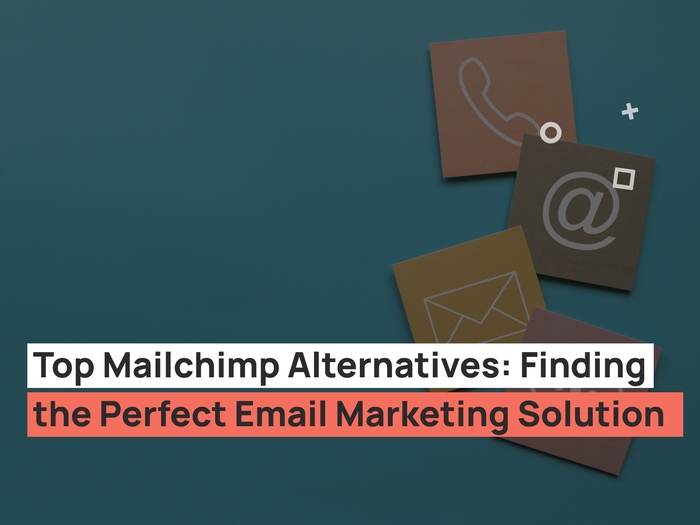The internet has become an integral part of our daily lives. It has transformed the way we communicate, access information, and do business. One of the most significant impacts of the internet is in the realm of marketing. Internet marketing, also known as online marketing, is the use of the internet to promote products or services. In this article, we will discuss everything you need to know about internet marketing, including its benefits, types, developing a strategy, best practices, and potential challenges.
What Is Internet Marketing?
Online marketing, also referred to as internet marketing or web advertising, is a type of marketing that utilizes the internet to reach customers and deliver promotional messages through various digital channels such as search engines, email, websites, and social media. This form of marketing is becoming increasingly popular as more consumers turn to the internet to research products and make purchasing decisions.

The Benefits of Internet Marketing
Reaching a global audience: Internet marketing allows businesses to reach a global audience with ease, making it an effective way to expand their reach and increase their customer base.
1. Targeting specific demographics
Internet marketing channels such as social media and PPC advertising enable businesses to target specific demographics based on age, gender, location, interests, and more, increasing the likelihood of conversions.
2. Building brand awareness
Internet marketing channels like content marketing and social media marketing help businesses build brand awareness and establish themselves as thought leaders in their industry.
3. Driving traffic to a website
Internet marketing channels like SEO and PPC advertising help drive traffic to a business’s website, increasing visibility and potentially leading to more leads and sales.
4. Generating leads and sales
Internet marketing tactics like email marketing and lead generation campaigns can help businesses generate leads and convert them into sales.
5. Providing real-time data and insights
Internet marketing enables businesses to track and analyze their campaigns in real-time, allowing them to make data-driven decisions and optimize their strategies for better results.
6. Improving customer engagement
Internet marketing channels like social media and influencer marketing enable businesses to engage with customers and build relationships, increasing the likelihood of customer loyalty and repeat business.
7. Enhancing customer experience
Internet marketing tactics like personalized content and targeted advertising help enhance the customer experience, leading to higher satisfaction levels and potentially increasing customer retention.
8. Increasing ROI
By utilizing cost-effective internet marketing channels, businesses can increase their ROI and achieve their marketing goals more efficiently and effectively.
9. Staying competitive
In today’s digital age, internet marketing is essential for businesses to stay competitive and relevant in their industry, allowing them to adapt to changing market trends and consumer behaviors.
Types Of Internet Marketing
| Search Engine Optimization | SEO involves optimizing your website’s content and structure to improve its visibility and ranking in search engines. Some of the tactics involved in website optimization may include conducting keyword research, implementing on-page optimization techniques, building links, and utilizing various other strategies. |
| Pay-Per-Click (PPC) Advertising | PPC advertising involves paying for ad placements on search engines or other websites. Advertisers bid on specific keywords or audience demographics, and pay each time their ad is clicked. |
| Social Media Marketing | Social media marketing refers to the process of advertising your brand, goods, or services on social media networks such as Facebook, Instagram, Twitter, and LinkedIn. This can include creating engaging content, running social media ads, and interacting with followers. |
| Content Marketing | Content marketing revolves around generating and distributing valuable, informative content to attract and engage your target audience. This may involve various formats such as blog posts, videos, infographics, and more. |
| Email Marketing | Email marketing is a type of internet marketing that uses email as a means to communicate with your audience and market your products or services. It encompasses a range of tactics, such as sending newsletters, promotional emails, and personalized messages, all with the aim of building relationships and driving conversions. |
| Affiliate Marketing | Affiliate marketing is a collaborative approach that involves forming partnerships with other businesses or influencers to promote your products or services. Affiliates earn a commission for each sale or referral they generate. |
| Influencer Marketing | Influencer marketing involves partnering with social media influencers to promote your products or services to their followers. This can include sponsored posts, reviews, and endorsements. |
The Role Of Internet Marketing
The role of internet marketing is to promote and sell products or services using various digital channels and strategies. The internet has become an essential part of our lives, and more and more people are turning to online platforms to research and purchase products or services. Therefore, internet marketing plays a crucial role in helping businesses reach and engage with their target audience, drive traffic to their website, increase brand awareness, and ultimately, generate more leads and sales.
Internet marketing also provides businesses with the ability to measure and track the effectiveness of their campaigns in real-time, which allows them to make data-driven decisions and optimize their strategies for better results. Moreover, internet marketing enables businesses to reach a global audience and target specific demographics, interests, or behaviors, making it a powerful tool for increasing their reach and market share.

Internet Marketing vs Content Marketing
Internet marketing and content marketing are two related but distinct marketing strategies. While both involve the use of digital channels to promote products or services, they differ in their focus and approach.
Internet marketing refers to a broad range of marketing tactics that businesses use to promote their products or services online. This can include search engine optimization (SEO), pay-per-click (PPC) advertising, social media marketing, email marketing, and more. The goal of internet marketing is to drive traffic to a website or other online platform, with the ultimate aim of generating leads, sales, or other desired actions.
Content marketing, on the other hand, is a specific type of internet marketing that focuses on creating and distributing valuable, relevant, and consistent content to attract and retain a clearly defined audience. The goal of content marketing is to establish trust and authority with potential customers by providing them with helpful and informative content that addresses their needs and interests. By building relationships with customers through content marketing, businesses can increase brand loyalty and drive more sales over time.
In essence, internet marketing is a broader term that encompasses all the different tactics that businesses use to promote their products or services online, while content marketing is a specific strategy within internet marketing that focuses on creating and sharing valuable content to attract and retain a target audience.
Both internet marketing and content marketing can be effective strategies for businesses looking to grow their online presence and reach more potential customers. The key is to use these strategies in a way that aligns with the goals and needs of your target audience, and to continually adapt and optimize your approach based on data and feedback from your customers.
Tips For Starting An Internet Marketing Strategy
Here are some tips to help you get started with developing an effective internet marketing strategy:
- Set clear goals
- Establish a Budget
- Conduct Market Research
- Know Your Audience
- Ensure your branding is prepared for launch
- Revamp Your Website for an Influx of Traffic
- Optimize Your Website
- Create a Marketing Plan
- Initiate A Marketing Campaign
- Track the Effectiveness of Your Marketing

Set Clear Goals
Before you start planning your internet marketing strategy, define your marketing goals and make them specific, measurable, attainable, relevant, and time-bound (SMART). This will help you stay focused and measure the success of your efforts.
Your marketing goal should be specific and measurable. For example, “increase website traffic” is a vague goal, while “increase website traffic by 20% within the next six months” is specific and measurable. A specific goal will help you stay focused and motivated, and a measurable goal will allow you to track your progress and determine whether you’re on track to achieve it.
Establish a Budget
You need to decide how much money you are willing to invest and how much you expect to get in return. Keep in mind that internet marketing can be a long-term investment, and you may not see immediate results. Therefore, it’s important to set realistic expectations and goals for your budget.
It’s also essential to track your spending and monitor your results regularly. You need to know which tactics are working and which ones are not so that you can adjust your budget accordingly. Make sure to use analytics tools to track your website traffic, social media engagement, email open rates, and other metrics that are relevant to your marketing goals.
Conduct Market Research
Analyzing the marketing tactics of your main competitors is a crucial step in developing an effective internet marketing strategy. A good starting point is to visit their websites and take note of the content marketing techniques they are using. It’s also important to explore if they have external marketing channels such as newsletters or social media pages, and subscribe or follow them accordingly.
By keeping an eye on your competitors, you can gain valuable insights into their marketing strategies, both successful and unsuccessful. This knowledge can help you identify the gaps in your own strategy and improve upon them. Additionally, observing your competitors can also inspire content ideas that you can incorporate into your own marketing strategy.
Know Your Audience
To do this, start by defining your target audience, including demographic information such as age, gender, location, income, and education. Conduct market research to understand your audience’s pain points, interests, and behaviors, and create buyer personas to represent them. Monitor social media channels where your audience is active to gain insights into their interests and behaviors.

Engage with your audience through social media, email marketing, or other channels to get direct feedback on your products or services. By getting to know your audience, you can tailor your internet marketing strategy to effectively reach and engage with them.
Ensure Your Branding Is Prepared For Launch
In today’s world, consumers use multiple devices and switch between different websites and apps throughout the day. This means that they expect a seamless experience whenever they engage with a brand across various channels. Therefore, it’s essential to have your branding prepared before launching any marketing campaign. Consistent execution of your logo, color choices, image selection, messaging, and tone across all marketing touchpoints is crucial.
Although branding is not one of the primary types of internet marketing, it’s a crucial aspect that every brand needs to address before starting any marketing strategy. Your branding can be the determining factor between the success or failure of even the most well-planned-out marketing strategy.
Revamp Your Website for an Influx of Traffic
It’s important to review and update your website before embarking on a marketing campaign, even if you already have one in place. To start, assess your web design and determine whether it’s modern and follows current trends. Review your website copy for any errors and ensure that your messaging aligns with your campaign’s value proposition. Finally, test all interactive components such as links, buttons, and forms to make sure that everything works correctly. You don’t want to promote something on your site only to have the conversion element fail.
A web design agency can assist you with revamping your website by providing professional expertise in modern design trends, ensuring your website is user-friendly, and optimizing its performance for an influx of traffic.
Optimize Your Website
To start, improving site speed is crucial as a slow-loading website can drive visitors away. Additionally, since mobile devices account for the majority of internet usage, it’s essential to optimize your website for mobile with responsive design and mobile-friendly features.
You can also improve search engine optimization (SEO) by using relevant keywords throughout your website, including in the page titles, meta descriptions, and content. Making it easy for visitors to navigate your website by organizing content into categories and subcategories, using descriptive menu labels, and including a search function can improve navigation. Finally, creating a user-friendly website with clear calls to action, easy-to-use forms, and engaging visuals and content can help you to improve user experience, attract more traffic, and ultimately drive more conversions.
Create a Marketing Plan
After completing your research and preparation, it’s time to create your marketing plan. Start by selecting the types of internet marketing you want to use, but don’t feel the need to try them all at once. Begin with content marketing by researching the different formats available and selecting a few that you and your team are comfortable creating.
Once you have a website that is both visually appealing and optimized for optimal performance, it’s time to launch your marketing campaign. Review your previously established plan and marketing goals, then start implementing your strategies.
Initiate a Marketing Campaign
To ensure that you remain organized throughout the process, consider creating a schedule for pre- and post-launch tasks. This schedule should specify when you need to complete certain tasks, such as writing a blog post, sharing content on social media platforms, sending newsletters, and more. By having a clear schedule, you can streamline the launch process and focus on getting your campaign up and running effectively.
Track the Effectiveness of Your Marketing
To gauge the effectiveness of your internet marketing strategy, it’s essential to monitor your progress over time and measure it against your goals. The various platforms you use for marketing will provide insights into your performance, so make sure to refer to them regularly. Additionally, leverage powerful website analytics tools, such as the ones provided in your Wix dashboard, to gain deeper insights into your website’s performance.
Regularly reviewing your marketing data can help you determine what’s working and what isn’t. Don’t waste time and resources on marketing content or channels that aren’t resonating with your audience. Instead, redirect your efforts towards something that will yield better results.
Conclusion
In conclusion, internet marketing is an essential aspect of any modern business strategy. By leveraging the various platforms and channels available, brands can reach their target audiences and achieve their goals. However, it’s important to start with a solid plan, conduct thorough research, optimize your website, and continually monitor your progress to ensure success.
Remember, internet marketing is a constantly evolving landscape, so staying up-to-date with the latest trends and tactics is crucial. And if you find that you need additional help or expertise, don’t hesitate to contact professional marketers who can assist you in achieving your internet marketing goals.



